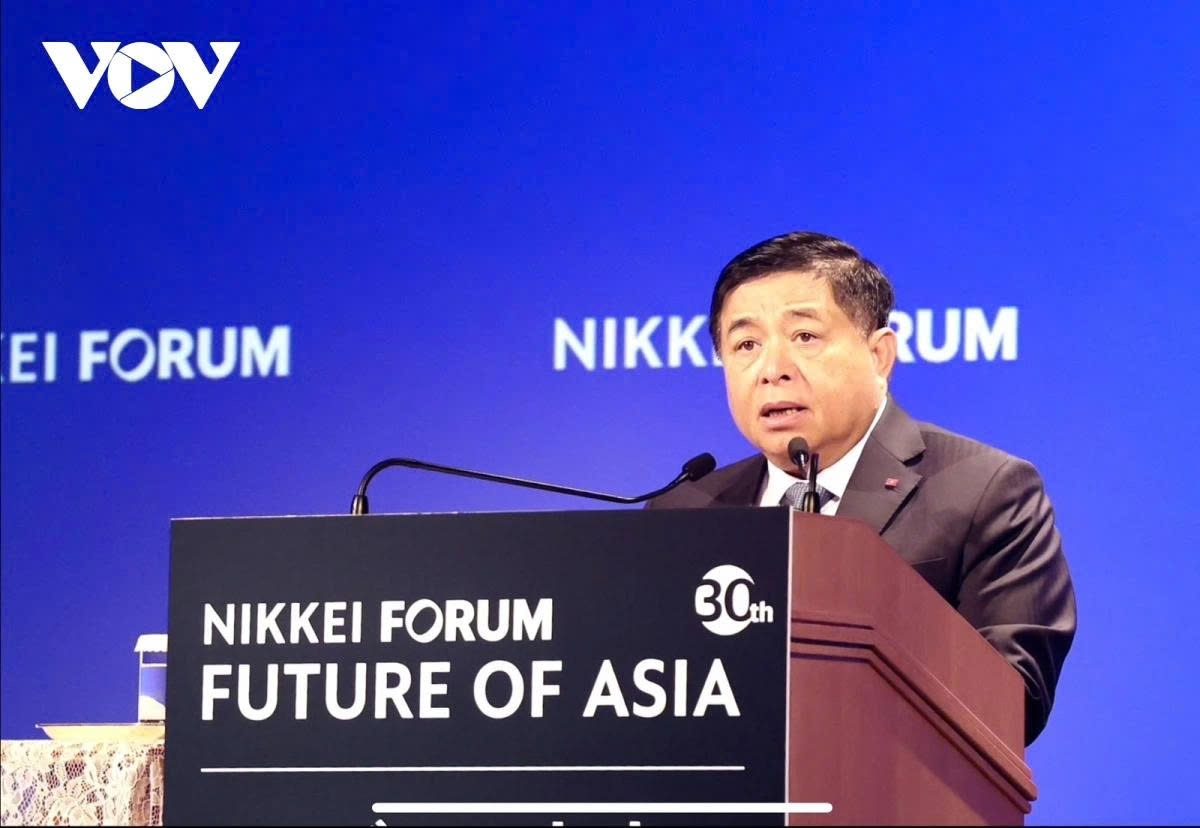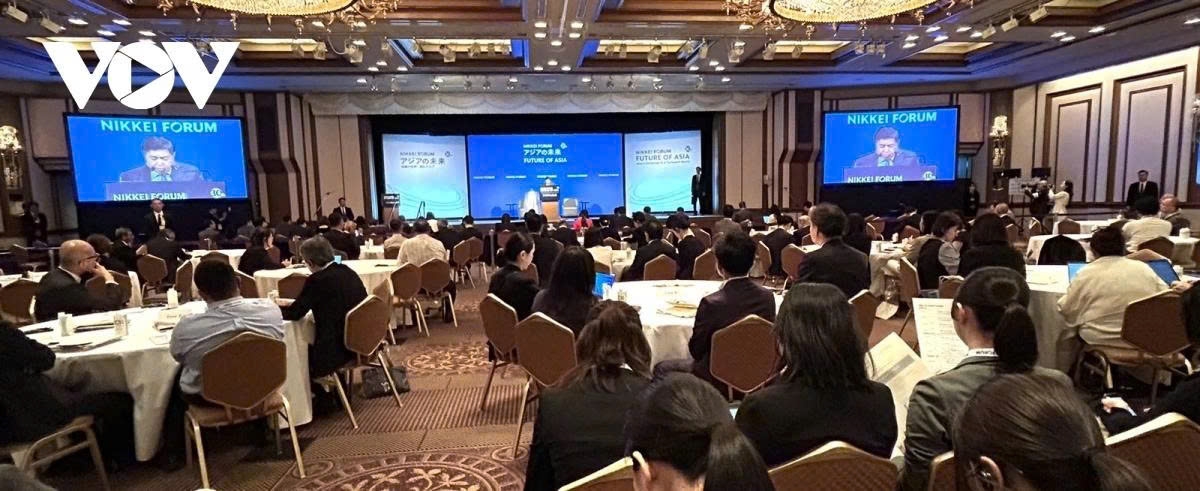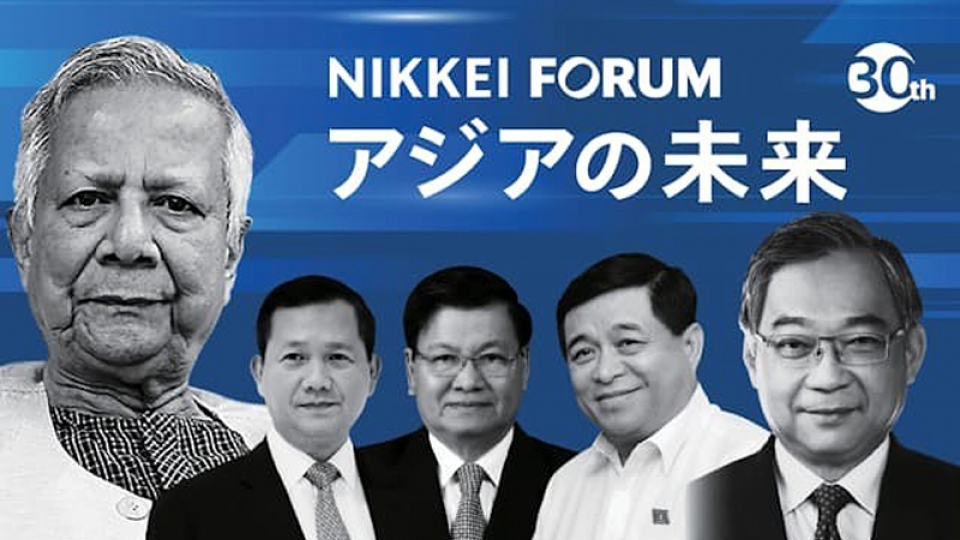Vietnam proposes strategic directions to propel Asia at Future of Asia forum
VOV.VN - Vietnamese Deputy Prime Minister Nguyen Chi Dung delivered a keynote speech at the 30th Nikkei Forum Future of Asia in Tokyo on May 30, outlining five strategic proposals to help Asia maintain its role as a key engine of global economic growth amid a world full of volatility and uncertainty.

Addressing leaders, scholars, and business executives from across the region, Dung emphasised that the world is facing unprecedented and intertwined challenges, including geopolitical tensions, economic fragmentation, declining strategic trust, erosion of global governance, and increasing barriers to sustainable and inclusive development.
However, he affirmed, Asia still holds strong foundations for resilience and advancement, serving as a vibrant hub of industrial activity and a pillar of global stability and growth.
To help Asia unlock its full potential and rise as a global economic driver, he proposed that the continent renew multilateral cooperation mechanisms by reinforcing a fair, rules-based, and inclusive global trading system based on the principle of ‘win-win’ cooperation.
He stressed the need for Asia to accelerate innovation and digital transformation, promote inclusive development by putting people at the centre, foster new economic models, with a particular focus on green transformation and digital economy, and strengthen solidarity and mutual respect.
He called on Asian countries to join hands, overcome global challenges, and continue writing new success stories for peace, cooperation, and shared prosperity.
Representing Vietnam, he shared the country’s vision for fast and sustainable development built upon three strategic breakthroughs, namely institutions, infrastructure, and human resources, and a “four-pillar” policy framework aimed at helping it catch up, move forward, and rise.
The four pillars referred to are the four resolutions that have just been adopted by the Communist Party of Vietnam Central Committee. They include a resolution on promoting science, technology, and innovation; a resolution on proactive and deep international integration; a resolution on comprehensive reform in legal development and enforcement; and a resolution on vigorously developing the private sector.

He also reaffirmed Vietnam’s strong commitment to becoming a major semiconductor hub and a critical link in the global supply chain. To achieve this, the country is prioritising institutional reforms, infrastructure development, workforce training, and investment incentives to foster a vibrant semiconductor ecosystem.
The Deputy PM urged foreign investors, especially those from Japan, to expand their presence in Vietnam, stressing that the country remains a trustworthy partner and a dynamic economy in the region.
On the sidelines of the forum, Deputy PM Dung met with Daisuke Arakawa, senior managing director of Nikkei, the organiser of the forum. Arakawa expressed deep admiration for Vietnam’s development achievements and forward-looking vision, noting that Vietnam’s reforms have drawn strong interest from the international business community and present significant opportunities for future cooperation.
Dung called on Nikkei to continue partnering with Vietnam in its development journey and to help promote the country’s image on the global stage.





